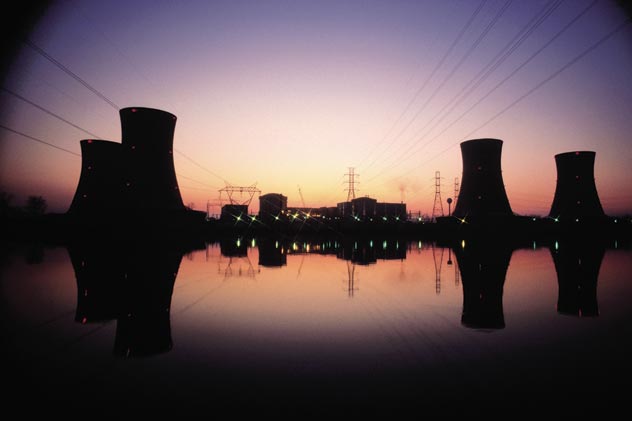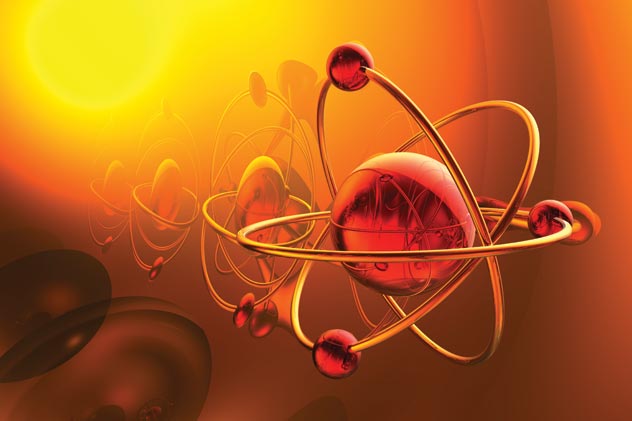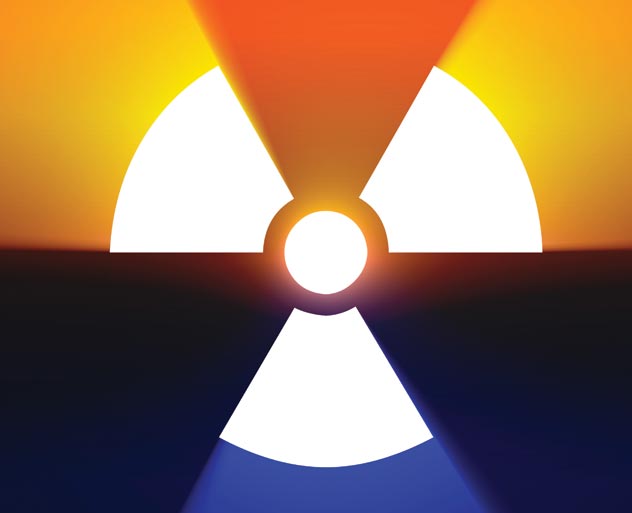SUBCONTINENT
India's Nuclear Push: Domestic Challenges
After years of negotiations and sustained backing from America India has found acceptance as the global “nuclear exception” despite not being a signatory of non proliferation treaties. However, the challenge to nuclear power now comes from within, as the Civil Nuclear Liability Bill has become a political hot potato, writes Siddharth Srivastava.

It took India several years of negotiations and sustained backing from America to find acceptance as the global “nuclear exception” despite not being a signatory of non proliferation treaties.
India’s status as a responsible democracy helped by-pass the maze of international statutes, most notably at the Nuclear Suppliers Group.
The latest challenge to India’s big atomic energy push is, however, from within the country and relates to the Civil Nuclear Liability Bill to pin responsibility for an accident or mishap, should it occur.
The calls for strict laws have grown louder in the wake of a recent “weak” court judgment in the Bhopal gas tragedy in 1984, the world’s worst industrial accident, that killed and maimed thousands.
British Petroleum shelling out $20 billion within weeks of the recent Gulf of Mexico oil spill has added to the clamor.
Over the last year, India has signed/is close to signing civil nuclear pacts with South Korea, Kazakhstan, Namibia, Tajikistan, Argentina and Mongolia for technology or fuel, apart from dealing closely with Russia, France, Canada, Britain and America.
The 45-nation Nuclear Suppliers’ Group lifted a 34-year-old ban on international nuclear commerce with India, in September, 2008. The Indo-U.S. civil nuclear deal was then approved.
India has announced big plans to produce nuclear energy, since. New Delhi has approved nuclear power plants of nearly 40,000 MW, with the imported reactors from Russia, France and America forming over 80 percent new capacity and indigenous the rest.
Prime Minister Manmohan Singh has said that India could increase its atomic capacity to 470,000 MW by 2050.
NLB Deadlock
The NLB is currently in limbo due to disagreement between the government and opposition parties. There have been allegations of buckling to American interests, criticism about inadequate liability limits and low limitation period on claims.
The liability of the operator at Rs. 5 billion ($100 million) has been deemed too low. There has been criticism about the operator being exclusively liable while exempting suppliers of nuclear equipment, which effectively makes the state responsible.
Private players in India are not allowed to produce nuclear power which remains exclusive to state-owned firms.
Both Greenpeace and Indian industry body Assocham have sought stringent “safety” clauses in the NLP. They say that “supplier” must include parties that install equipments, instruments, spare parts, contractual labor accounting for 5 percent or above of total project cost.
The main opposition party, the Bharatiya Janata Party, has said, “The aim of the bill is to please Americans. The bill is not for the people of India.”
General Secretary of the Communist Party of India (Marxist) Prakash Karat has said, “There can be no compromise with the lives and safety of the Indian people to appease the commercial interests and profits of foreign and Indian big business.”

NLB and CSC
Adding to the vitriolic debate is a recent U.S. Congressional report that says that American firms are unlikely to undertake any nuclear trade with India if New Delhi does not adopt a Convention on Supplementary Compensation for Nuclear Damage.
The CSC places the burden of compensation in case of nuclear damage on the “installation state” (where the nuclear facilities are located), in this instance, India, a politically tricky aspect for New Delhi to agree.
Observers in India say that the CSC favors the U.S. which is why only 13 countries had joined it and out of these only four have ratified it.
India, instead, should incline towards the Vienna Convention on Civil Liability with no cap on nuclear liability but a minimum floor that permits nations to formulate independent liability regimes, say the experts.
Bhopal Tragedy and NLB
Calls for tough statutes against industrial mishaps have grown due to renewed attention on the Bhopal tragedy in which the perpetrator, Union Carbide has been let off the hook.
In 1984, 20,000 people were killed and over 100,000 maimed badly when a deadly mix of methyl isocyanate and other lethal gases spewed out of the then Union Carbide’s pesticide plant in India’s central province Madhya Pradesh
The initial demand on Carbide (now a part of Michigan-based Dow Chemicals) was for $15 billion. The company has shelled out equivalent of just $1 billion dollars (at today’s prices) with each victim calculated to have received about $550.
“If there are lessons to be learnt from the tragic episode of Bhopal, it is that there should be strict laws, which will assign civil liability and ensure that criminal liability is also pinned down,” Karat has said.
Further, a mere two years’ imprisonment for causing “death by negligence” was awarded by a court recently to the convicted eight senior Indian executives. Worse, they were granted bail immediately.
Meanwhile, Warren Anderson, the 91-year-old former Carbide CEO and an American, is still at large, with reports that the federal government at the time allowing him to escape from India, in order not to annoy Washington and affect foreign direct investment flows.
New Delhi sent a request for Anderson’s extradition to America in 2003, which is still pending.

Nuclear Safety
As India’s push for nuclear energy grows, so are the murmurs about India’s nuclear safety record.
Some analysts say there could be cause for alarm, given the non-transparent nature of India’s state-controlled nuclear energy sector — there is no way to estimate whether safety issues will be carefully followed.
Data on the sector are closely guarded by the nuclear establishment, which functions under the purview of the Department of Atomic Energy.
The Indian chapter of the International Physicians for Prevention of Nuclear War, in a 2008 survey, found that “sterility was found to be more common in people residing near uranium mining operations.” Birth defects and congenital deformities followed a similar pattern.
In the early 1990s, the Tarapur plant near Mumbai leaked radioactive material from faulty cooling systems. Incidents of genetic disorders have been recorded in populations at Rawatbhata in Rajasthan state and in the sea near Kalpakkam in Tamil Nadu, where nuclear power plants are located. In 2004, the Kakrapar-1 reactor in Gujarat was shut down.
In the 1990s, the former chairman of the Atomic Energy Regulatory Board, A. Gopalakrishnan, expressed fears about the safety status of some nuclear installations under the DAE.
India will need to sort out the domestic issues connected to nuclear power generation.
|